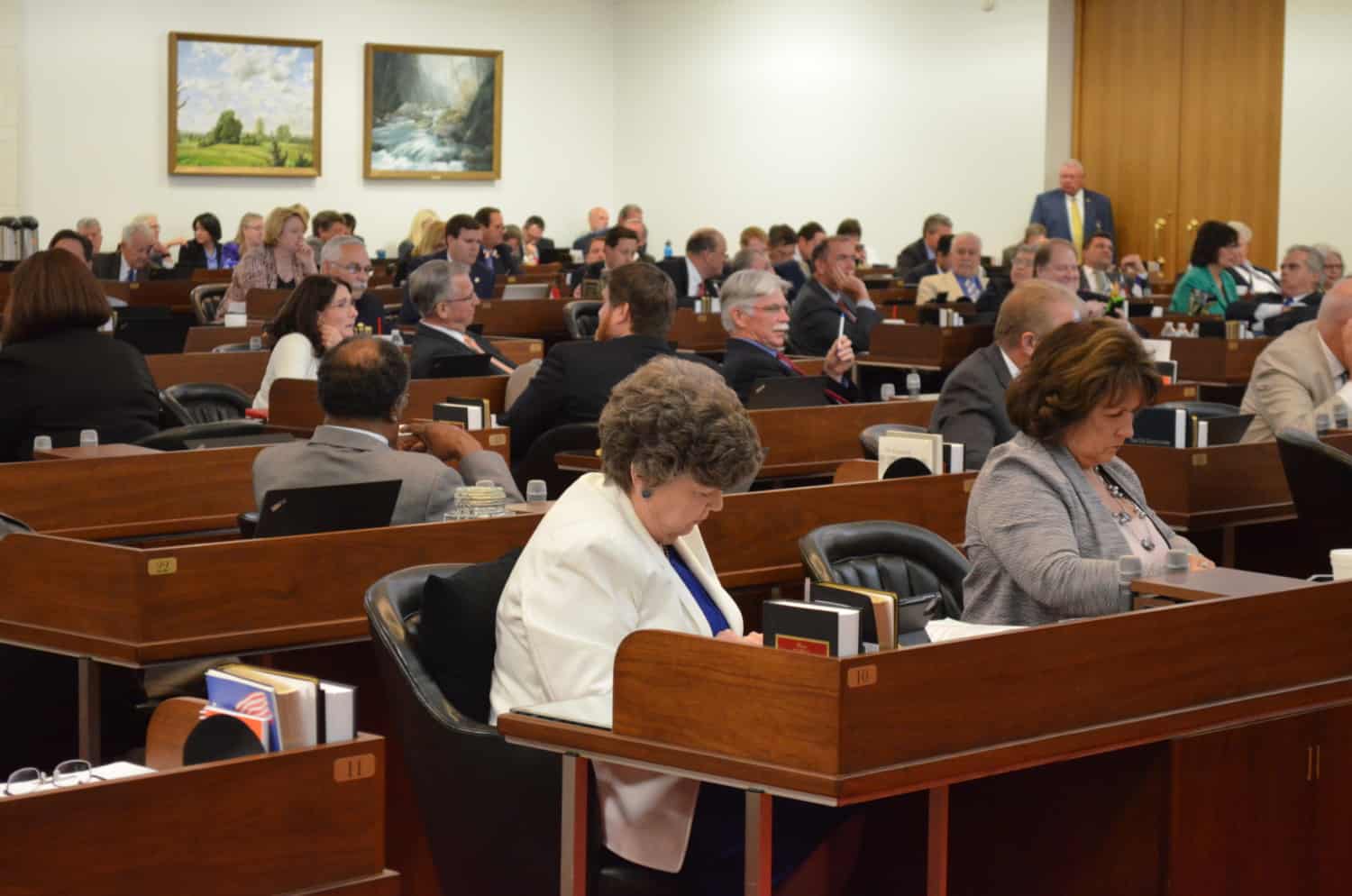Late in the day Thursday, the House took up a number of education amendments before voting on the budget plan, but most were rejected.
One, from Rep. Rosa Gill, D-Wake, mirrored an amendment that she proposed both in the House education appropriations committee and the full House appropriations committee. The measure would have moved additional funds from opportunity scholarships into K-3 class teacher funding.
“Never have I met a parent that wants to choose between lower class sizes and the specialty teachers, art, music and PE,” she said. “They expect both. It’s really not too much to ask.”
She referred to impending changes in class size mandated by the General Assembly that go into partial effect this coming year and full effect in 2018-19. The class size restrictions will eliminate flexibility in funding that local districts often use to fund extracurricular teachers, like those who teach art, physical education, and music. Senate leaders have promised it will fund those teachers after a study of the state’s needs. The House budget also includes a provision that directs districts to report on building capacity limitations related to the class size restrictions.
Rep. Jeffrey Elmore, R-Wilkes, called on the chamber not to support the amendment. He had been present for both of Gill’s prior attempts to attach the amendment to the budget.
Another amendment from Rep. John Autry, D-Mecklenburg, sought to reduce planned funding for opportunity scholarships through 2026-27 and move the money into funding for school employees.
Both amendments were quickly killed by votes to table them which effectively dismisses them.
Rep. William Richardson, D-Cumberland, brought an amendment that would take funding allocated for Department of Public Instruction (DPI) school business system modernization and give it to the NC Grow program (North Carolina Getting Ready for Opportunities in the Workforce), which would allow certain students to attend community college free of charge. Richardson said NC GROW is needed in order to make sure that young people in the state are trained for jobs of the future.
“If our workforce is not prepared, if they are not ready to take these wonderful jobs that are coming, these industries will go elsewhere,” he said.
He added that school business system modernization is not immediately necessary.
“It is coming from something that can be put off a year or two and it won’t matter,” Richardson said.
DPI school business system modernization receives a recurring $10 million in the first year of the biennium and $21.7 million in the second under the House budget. NC GROW is a program proposed by Governor Roy Cooper in his budget. Richardson’s amendment would have created the program and added recurring funds of $500,000 in the first year and $20 million in the second year for the program.
Elmore objected to the amendment, saying that school business system modernization is vital because obtaining information from the local level about schools and education is essential to running the public school system well. He said it would help eliminate inconsistencies in information from across the state.
The amendment failed 43-72.
Later, Rep. Bobbie Richardson, D-Nash, tried to take money from opportunity scholarships for the NC GROW program in an amendment as well. That amendment failed in a 42-71 vote.
Rep. Jonathan Jordan, R-Ashe, tried to make salary increases for all teachers and state employees equal. His amendment would have taken appropriations for salary increases in the budget and distributed the funds equally to all state employees and state-funded employees of local school boards.
“That is the best investment we can make in our employees,” he said.
The amendment would have radically restructured the planned pay increases for educators, but his amendment was called out of order by House Speaker Tim Moore, R-Cleveland. Jackson appealed the ruling by Moore, but his appeal was voted down.
An amendment by Democratic freshman vice chair, Rep. Amos Quick, Guilford, would have expanded the Teaching Fellows program funded in the budget.
The program would give students up to $8,250 per year in loans that could be forgiven if the students become teachers and serve for a certain period of time at North Carolina elementary or high schools in a STEM (Science, Technology, Engineering, Mathematics) field or special education. Quick’s amendment would have opened the program to teachers interested in other education areas.
Horn argued against the amendment, explaining that the language for the program is the same in the House and Senate budgets and so it would survive the compromise process so long as it remains identical.
The Teaching Fellows program in the budget is a revamped version of a program, started in 1986, that also provided scholarships to students who wanted to pursue teaching careers, but it did not have the restrictions that the new program does. Funding was ended in 2011 by the General Assembly.
Rep. William Richardson, D-Cumberland, argued that the House should take on the Senate over the measure.
“One of the most successful programs in 30 years was the Fellows program,” he said. “To eliminate it was a huge mistake. Now let’s fix this.”
The amendment failed 45-71.
Recommended reading




